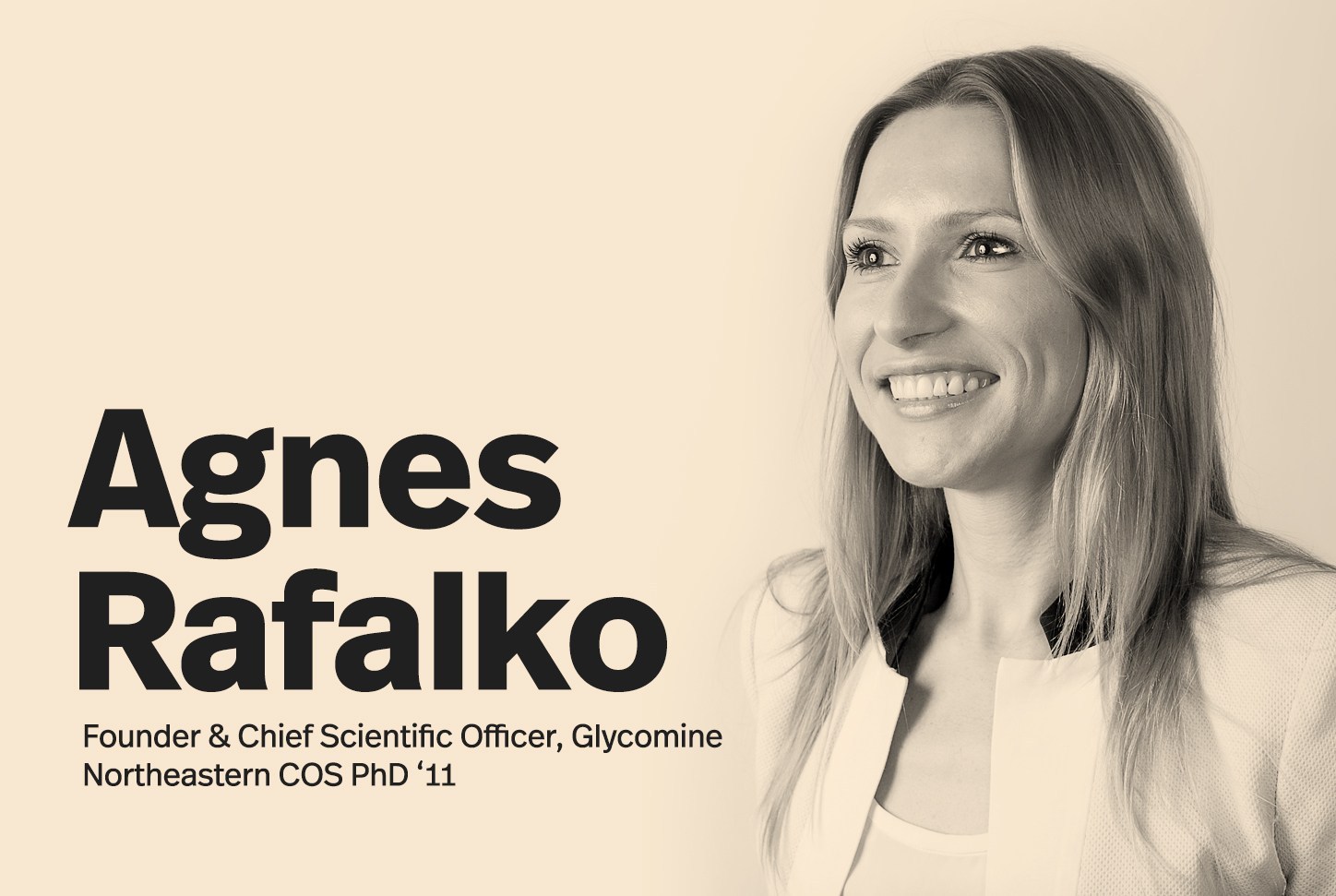Agnes Rafalko got her PhD in proteomics and nanomedicine at Northeastern. She now works as the Chief Scientific Officer of Glycomine, a startup she herself founded, that works on drugs for orphan diseases.
COS: Even for big companies, the business side of the pharmaceutical industry can be notoriously tricky to navigate. What were some of the challenges you experienced working in this space as a startup?
RAFALKO: The big challenge for our startup was finding funding for a product with such a small market. Not everyone wants to invest when discussing a drug which affects less than 2,000 patients worldwide. You can basically discard 90% of potential investors from Silicon Valley and Sand Hill Road from day one. And even then you’re left with—let’s say 10% or less—and out the remainder, very few are interested.
COS: One can understand the market forces at play, but in the same right, we’re talking about a human-oriented enterprise here. That must be frustrating for you.
RAFALKO: Exactly. And not only humans, but little humans—we’re talking about little kids that don’t have any other options. Most of the time, these rare diseases are not well understood. From a development perspective, it’s also very challenging because there are so many variables. For example, it is difficult to get a group of patients with similar disease phenotypes. You need to have a number of patients where you can derive some statistics. Variations make things very difficult when it comes to FDA approval.
COS: Can you talk more about what you’re working on at Glycomine and what influenced you to commit your rare diseases startup?
RAFALKO: We work on congenital disorders of glycosylation type 1a, or CDG 1a for short. For me, it wasn’t something that I picked up interest in overnight. I would say that it started at graduate school. I was part of the lab that worked and studied glycosylation and how it changes when someone has cancer, for instance. That phenomena is known, but not well understood, because it’s not genetic. Then I moved out to San Francisco and I ended up before working for Biomarin, which is one of the major orphan drug developers. It really blossomed from there.
COS: How does your work help the orphan disease community emotionally, in addition to therapeutically?
RAFALKO: We’re pretty lucky to be working on a disease that already has a huge and established patient and focusing group in Europe—as well as in the US—and we’ve met tons of patients affected by the disease. They stay close with us, keeping up with news and what we’re working on. It’s been quite interesting—if you work on cancer or cardiovascular disease, you don’t really actually get to meet those patients every day. I’m sure there are plenty of scientists that have never met a patient with the disease that they’re working on. For us, we’re exposed to that from day one. In fact, we had patients investing in our company early on—they were one of the initial seed investors in the company.
COS: So patients not only stay informed on treatments, but also act as their own advocates?
RAFALKO: Yes, they do. They raise money and even push development of treatments, research, and collaborations from other academic institutions. It’s really impressive and a lot of work on their end, but I do admire them for what they do. It really helps us in the drug approval process later on, too— to have them supporting us and what we do.
COS: Knowing how arduous the work can be, do you still find it fulfilling?
RAFALKO: It is fulfilling for me. I try not to forget about the mission and why I started this company. It’s difficult to be working on treatment for rare diseases as a startup—but then I often think about the patients and the families I am really close with. It’s helps me forget about the challenges and frustrations. It gives me the motivation to move forward.
COS: What’s your key piece of advice for anybody attending Northeastern?
RAFALKO: Take advantage of what the university offers. I remember my advisor wanted me to become part of the Igert Nanomedicine program and I did not want to do that at all. However, it turned out to be really useful, even after I graduated, to learn about the different non-medical aspects. As a matter of fact, the treatment that we’re developing is actually a nanoparticle. So I would immerse yourself in the environment and what the university has to offer.

